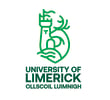Analysis: research shows working for organisations that are 'doing their bit' for tackling climate change is high on the list of priorities for workers
By Lydia Murillo Ramos, Universidad Rey Juan Carlos, Lorraine Ryan and Claire Harnett, University of Limerick
We are all only too aware of the global climate crisis and the need for urgent action to prevent irreversible damage to the planet. It has been deemed the greatest challenge of our times and the current energy crisis has compounded the reality of the need for sustainable, green solutions in every aspect of our lives. The European Green Deal will play a significant role in driving the EU countries' commitment to becoming a climate-neutral continent by 2050.
There are many challenges to transforming the EU into an advanced, resource-efficient, and competitive circular economy that is fair and inclusive for every individual and geographic area. Yet it must be done – there is no Planet B. Achieving these climate targets will require a substantial change in the attitudes and behaviour of people – as citizens, as consumers and as workers. More and more organisations are beginning to realise the importance of incorporating the green agenda into what they do. Sustainability has quickly become one of the key concerns for organisational stakeholders including governments, industry bodies, customers, employees, and (perhaps even) shareholders.
There are some promising examples across Ireland of organisations striving to create sustainable and resource efficient ways of working. The Irish Green Building Council seeks to accelerate the transition to a sustainable built environment through policy creation, education, and the provision of tools to measure and accelerate progress. It highlights projects such as the first net zero carbon hotel in Dublin – the Wren Urban Nest – a place where all activities are underpinned by the goal to lead the way in sustainability.
We need your consent to load this rte-player contentWe use rte-player to manage extra content that can set cookies on your device and collect data about your activity. Please review their details and accept them to load the content.Manage Preferences
From RTÉ Radio 1's Morning Ireland, UCC's Professor Hannah Daly discusses a new report into how Ireland can address energy demands while meeting climate targets
Other projects include those that seek to repurpose derelict and vacant buildings to a high standard to help meet Ireland’s housing needs in a sustainable way. Fáilte Ireland’s post Covid strategy focuses on adopting a sustainable approach to driving the long-term recovery of the tourism sector across Ireland. It has developed a carbon reporting framework to benchmark the performance of Irish tourism businesses along with carbon calculators and other supports to help businesses reduce their carbon footprint.
As consumers we can see evidence of these efforts in our hotel stays with for example less plastic waste from miniature toiletries and reminders to conserve water. There is still a long way to go, and many organisations struggle to find sustainable ways to do business and continue to make profit (which has long been the raison d’etre of business in capitalist societies). As a starting point, organisations need to establish a sustainability or Environmental, Social and Governance (ESG) strategy – something that many organisations have yet failed to do.
The role of Human Resource Management (HRM) has a critical part to play in advancing the green agenda in organisations and societies. HRM has long been concerned with understanding and managing peoples’ attitudes and behaviours and it is attitudes, behaviours, and values of individuals that, when combined, are key to ensuring sustainability into the future. The idea of 'green human resource management’ (GHRM) has emerged in response to the need to increase HRM's involvement in the pursuit of environmentally friendly corporate practices. As such, GHRM practices are designed to improve the competencies, knowledge, and pro-environmental behaviour of employees. Organisations seeking to hire applicants with eco-friendly attitudes will tailor recruitment and selection practices by asking questions in relation to the environment at the interview stage.
We need your consent to load this rte-player contentWe use rte-player to manage extra content that can set cookies on your device and collect data about your activity. Please review their details and accept them to load the content.Manage Preferences
From RTÉ Radio 1's Today with Claire Byrne, what is 'greenwashing' and how do you spot it?
‘Green training’ of employees increases their knowledge of environmental issues and the actions that they can take within the organisation to improve environmental outcomes. Firms that are truly committed to sustainability can incorporate these and other HR activities such as performance and reward management linking them to green behaviours and outcomes. Key to all of this is top management commitment to green practices to drive sustainable work and organisations which must go beyond greenwashing.
The good news is that there is much crossover here. Research shows that working for organisations that are ‘doing their bit’ for tackling climate change is high on the list of priorities for workers when assessing their work values and making career choices. This is particularly important for the younger generation of workers who actively seek to work for organisations offering careers that can help make a difference in the world. The development of GHRM practices enables greater levels of employee empowerment and commitment to the environment, as well as a positive work environment. GHRM practices are a crucial organisational tool for boosting environmental performance, cutting costs, and increasing efficiency.
Read more: Carbon offsets: credible idea or corporate greenwashing?
Of course, the idea of sustainability extends beyond the physical environment. GHRM is a subset of the broader idea of sustainable HRM which focuses on the sustainable use of all resources including the ability to attract and retain a workforce both now and into the future through providing decent work. It is sometimes easy to despair pessimistically about climate change but there are tools that organisations can use and many workers eager to engage with organisations striving for sustainability. In the longer term, the future survival of organisations and indeed the planet depend on it.
Lydia Murillo Ramos is a PhD student at Universidad Rey Juan Carlos, Madrid, Spain. Dr Lorraine Ryan is a lecturer in Employment Relations & Human Resource Management in the Department of Work & Employment Studies in UL. Dr Claire Harnett is a Lecturer with the Department of Work and Employment Studies in UL.
The views expressed here are those of the author and do not represent or reflect the views of RTÉ


